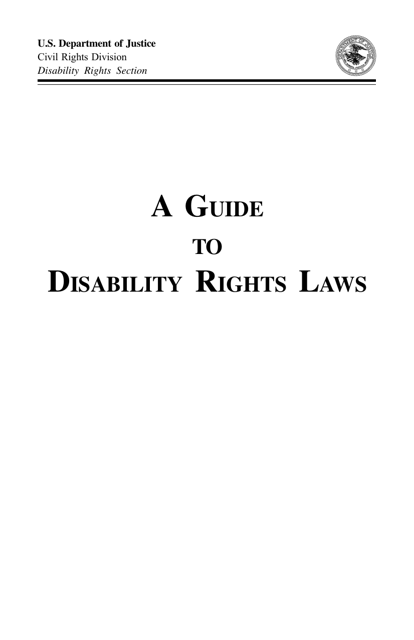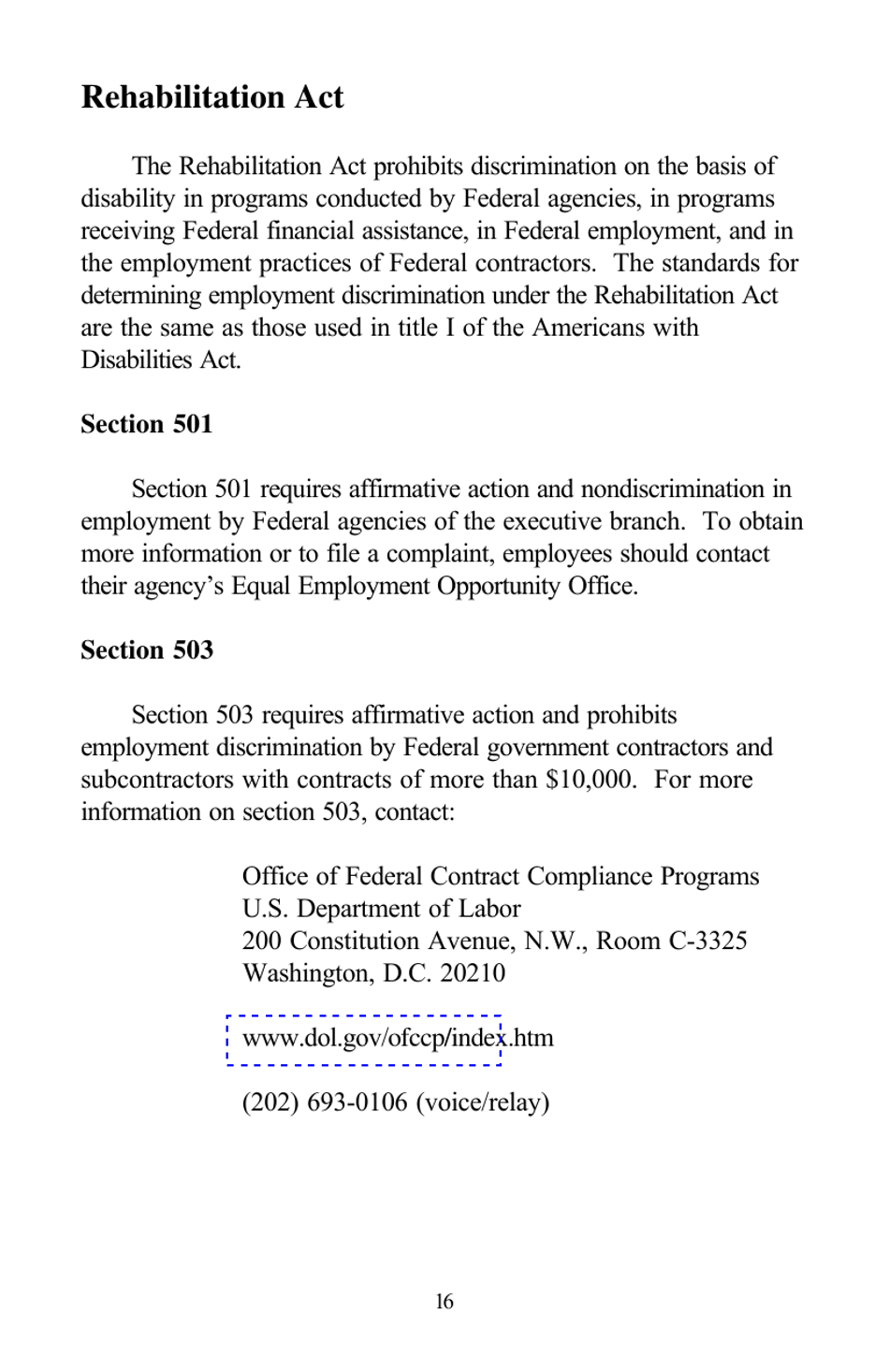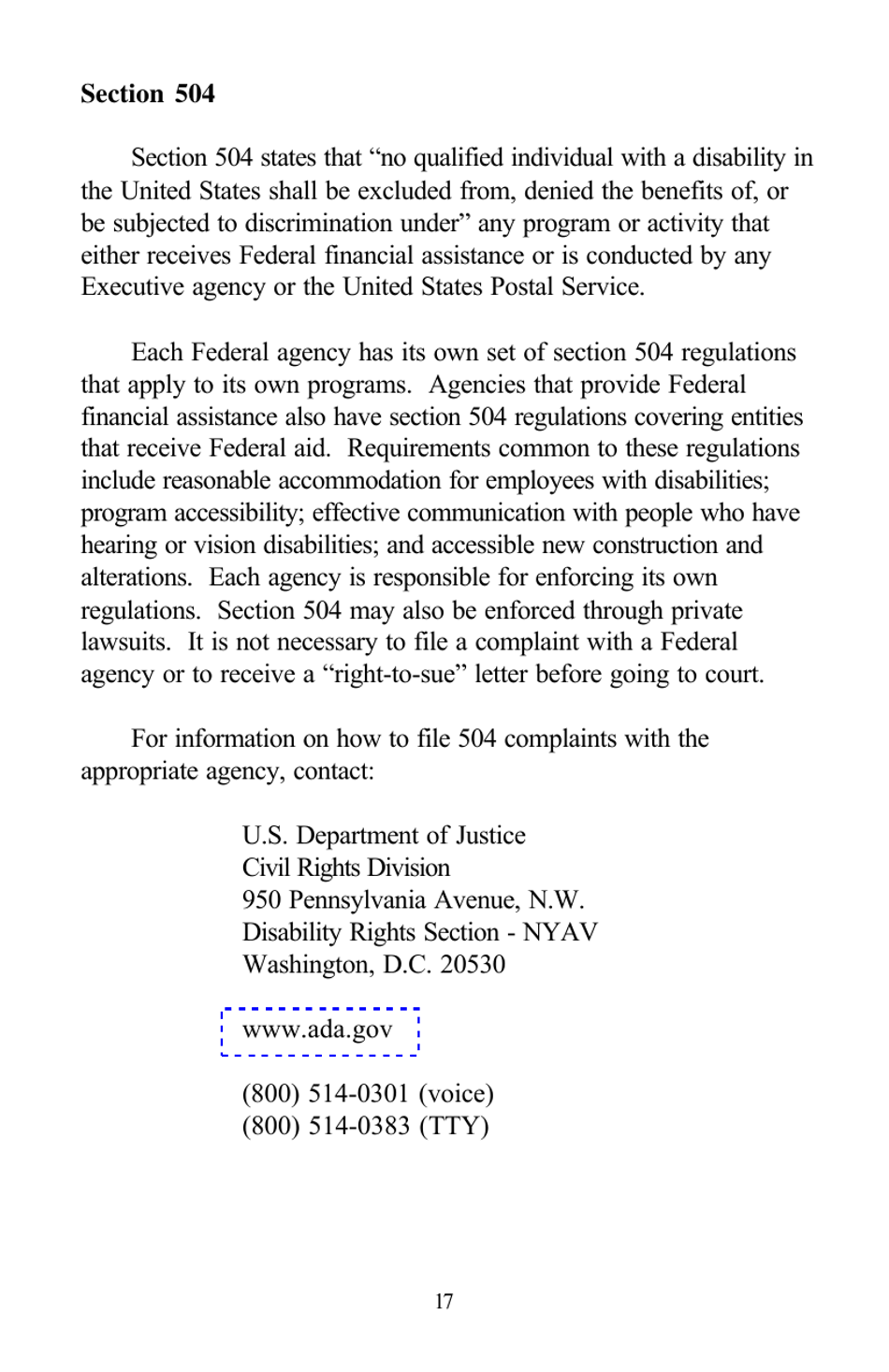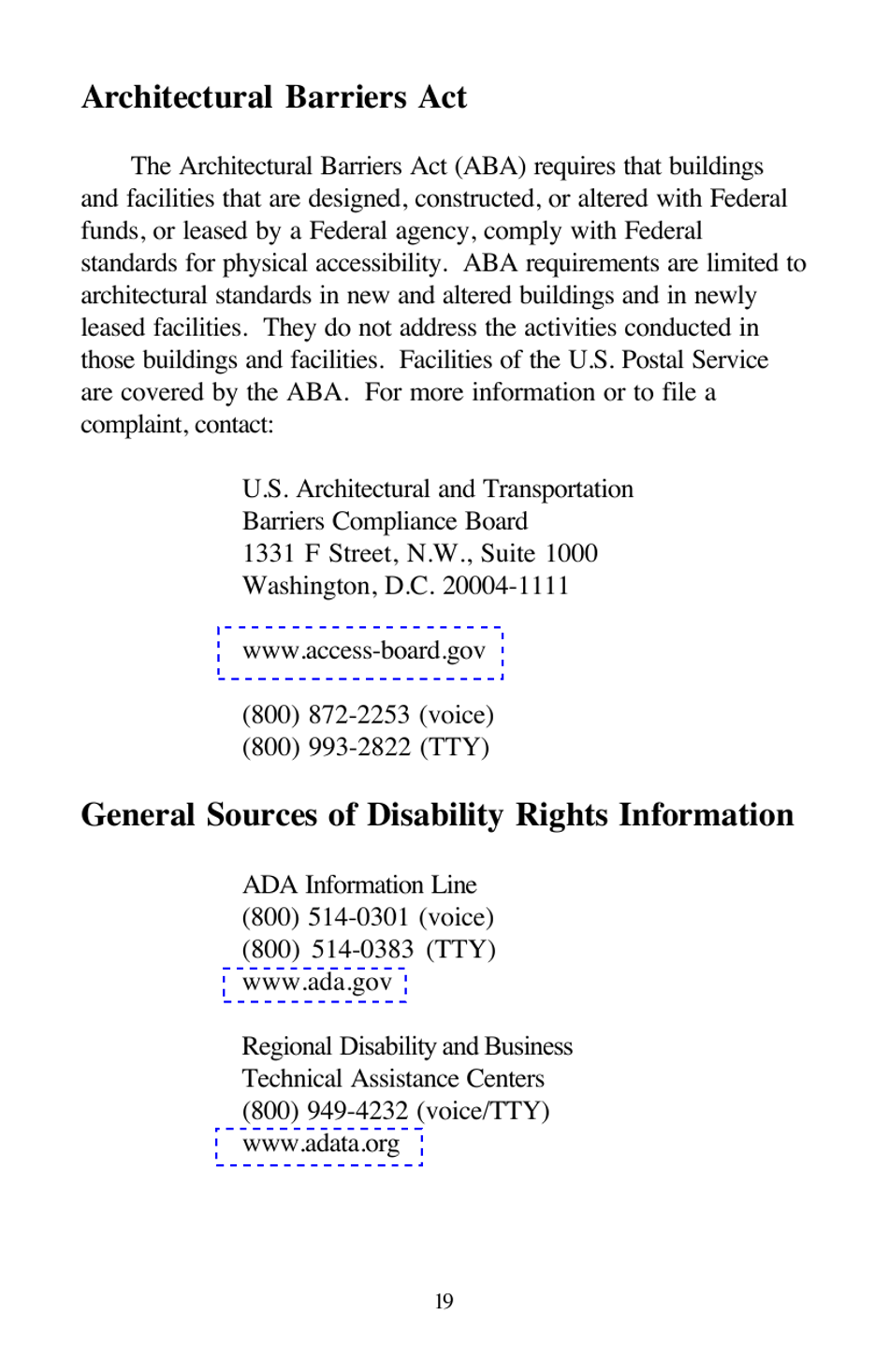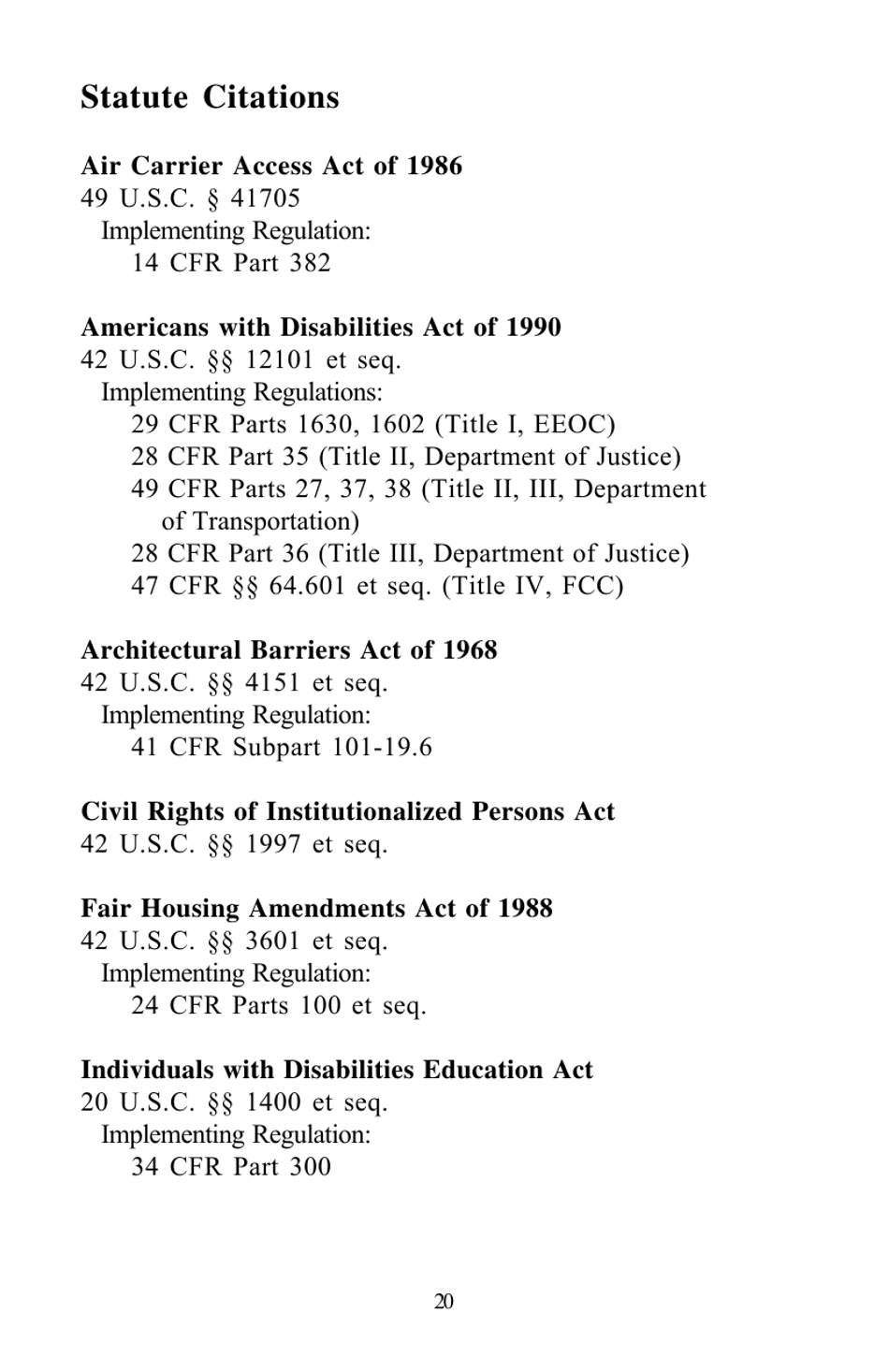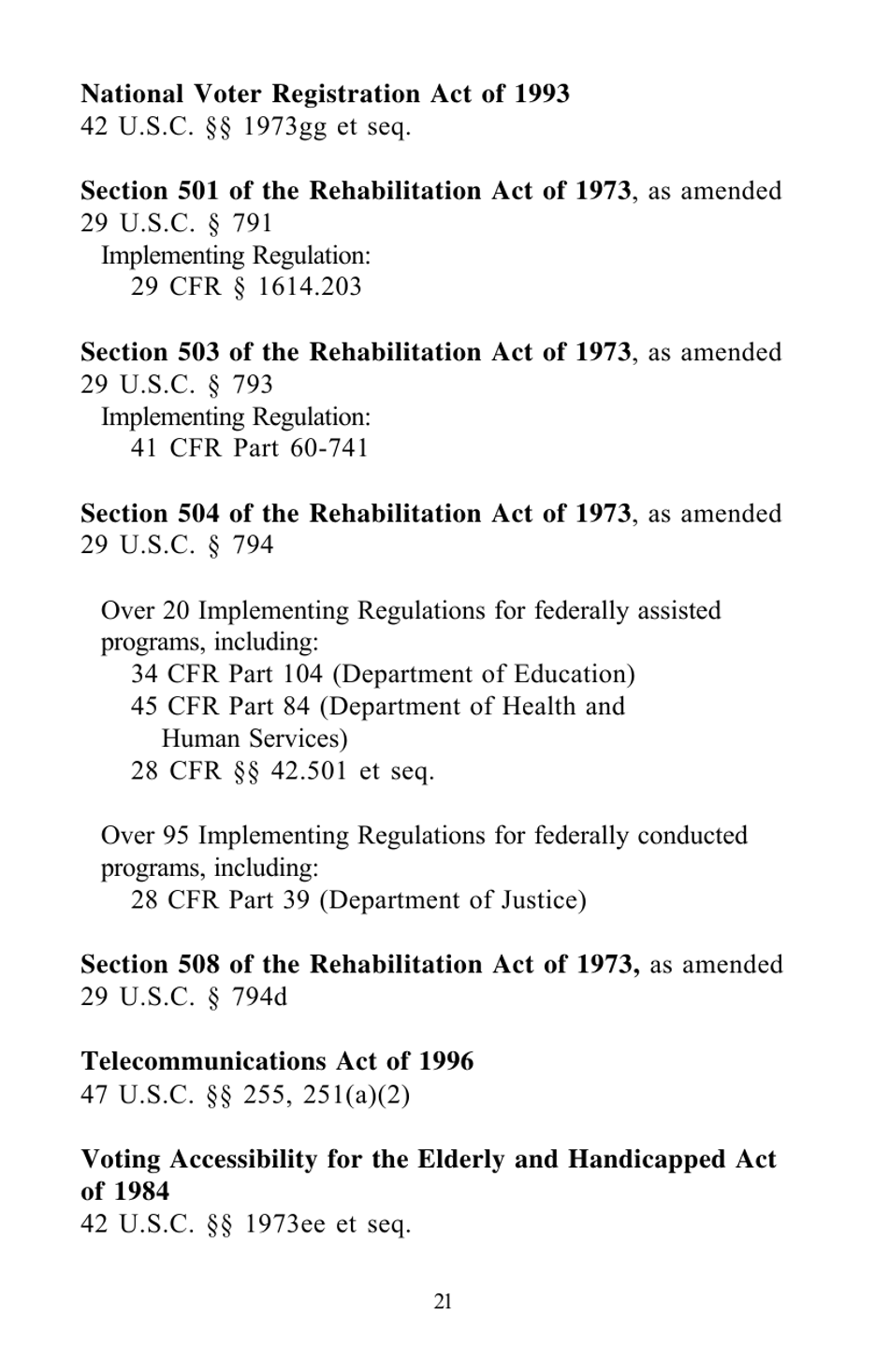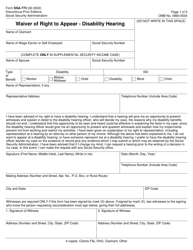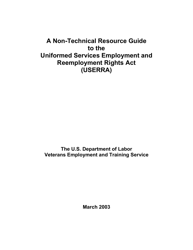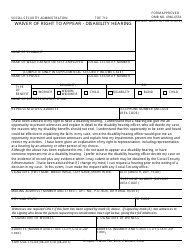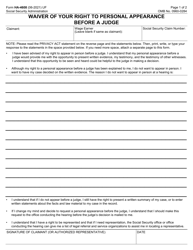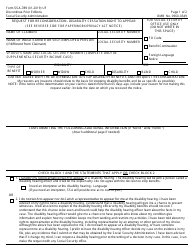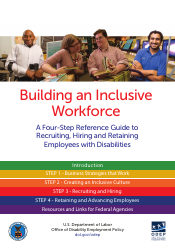A Guide to Disability Rights Laws
A Guide to Disability Rights Laws is a 23-page legal document that was released by the U.S. Department of Justice on July 1, 2009 and used nation-wide.
FAQ
Q: What are disability rights laws?
A: Disability rights laws are laws designed to protect the rights of individuals with disabilities and promote their equal participation in society.
Q: What is the purpose of disability rights laws?
A: The purpose of disability rights laws is to ensure that individuals with disabilities are not discriminated against and have access to equal opportunities and services.
Q: What are some examples of disability rights laws in the United States?
A: Examples of disability rights laws in the United States include the Americans with Disabilities Act (ADA) and the Rehabilitation Act.
Q: What does the Americans with Disabilities Act (ADA) do?
A: The Americans with Disabilities Act (ADA) prohibits discrimination against individuals with disabilities in various areas, such as employment, public accommodations, and transportation.
Q: What does the Rehabilitation Act do?
A: The Rehabilitation Act prohibits discrimination on the basis of disability in programs and activities that receive federal financial assistance.
Q: Who enforces disability rights laws?
A: Different agencies enforce disability rights laws, depending on the specific law. For example, the ADA is enforced by the U.S. Department of Justice.
Q: What should I do if I believe my rights have been violated under disability rights laws?
A: If you believe your rights have been violated, you should consult with an attorney or contact the appropriate enforcement agency to file a complaint.
Q: Are all disabilities protected under disability rights laws?
A: Yes, disability rights laws protect individuals with all types of disabilities, including physical, mental, sensory, and cognitive disabilities.
Q: Do disability rights laws apply to employers?
A: Yes, disability rights laws apply to employers and prohibit discrimination against individuals with disabilities in all aspects of employment, including hiring, firing, and workplace accommodations.
Q: Are businesses required to make accommodations for individuals with disabilities?
A: Yes, businesses are required to make reasonable accommodations for individuals with disabilities, unless doing so would cause undue hardship.
Form Details:
- The latest edition currently provided by the U.S. Department of Justice;
- Ready to use and print;
- Easy to customize;
- Compatible with most PDF-viewing applications;
- Fill out the form in our online filing application.
Download a printable version of the form by clicking the link below or browse more legal forms and templates provided by the issuing department.
